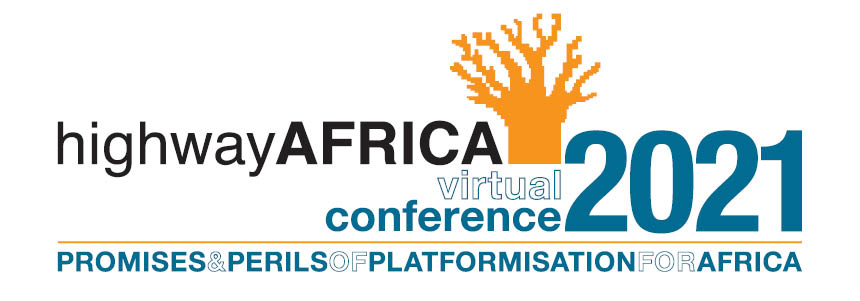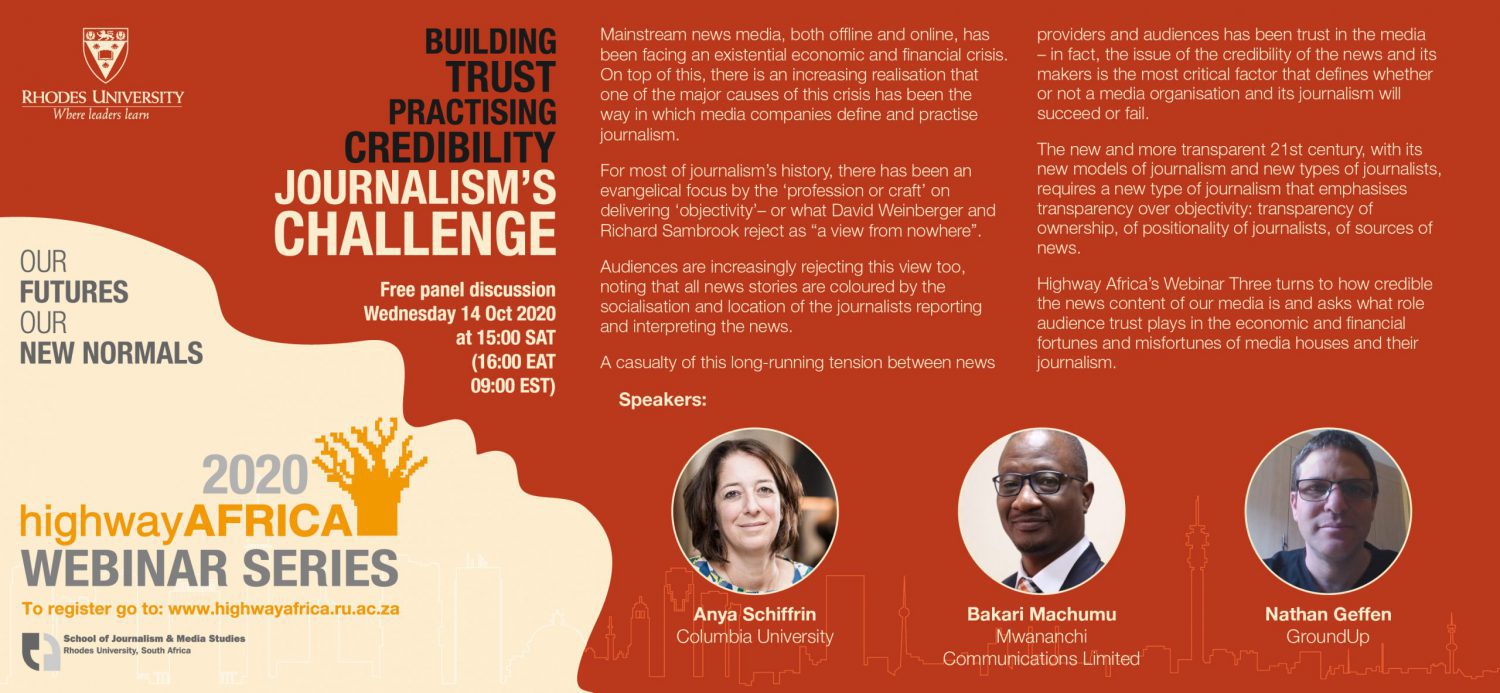Highway Africa (HA), the continent’s biggest media conference run by the School of Journalism and Media Studies at Rhodes University, held its third webinar, entitled “Building Trust Practicing Credibility: A Journalism Challenge,” on 14 October.
This webinar looked at the credibility of the media’s news content and the role audience trust plays in the economic and financial fortunes and misfortunes of media houses. It formed part of the “Our Futures, Our New Normals” webinar series that seek practical solutions to challenges that face African media and journalism in the era of Covid-19 and how to explore and exploit emerging opportunities.
Speaking at this event, Anya Schiffrin, from the International & Public Affairs School, Columbia University, noted that that there has been a renewed interest in trust and credibility within the media post-2016 after Donald Trump came into power in the United States.
Schiffrin also pointed out that the latest 2020 Reuters Digital News Report indicates that media trust is currently rising. “What we have seen since Covid-19 is a vast increase in consumption of news, and people are turning back to reliable sources for information about the virus,” Schiffrin said.
Two editors on the frontline of dealing with trust and credibility within the media, Bakari Machumu, Executive Director of Mwananchi Communications based in Tanzania, and Nathan Geffen, Editor for GroundUp, South Africa, joined Schiffrin as panelists in this webinar.
Machumu noted that their media company is guided by editorial policies, a working governing body, and editorial committee that oversee the newsroom and trust and credibility issues.
Machumu further noted that over the years, they had made their editorial policies public to let the public aware and judge the media company on their performance
Geffen stated that they have stringent editing, fact-checking, and peer review processes in their news agency to minimize the trust-breaking errors.
Geffen further said: “We have to try and put aside our preconceived ideas and notions and try and be as fair as possible to all parties no matter what we might personally think of them.”
In his closing remarks, Bakari emphasized the need to collaborate as an industry and different players in the sector, those in the newsroom, the regulators, and other stakeholders. He called for more research to help understand the challenges the media in Africa are facing.
The webinar was hosted by Professor Anthea Garman, the Acting Head of the School of Journalism and Media Studies, and Francis Mdlongwa, the Director of Rhodes University’s Sol Plaatje Institute (SPI) for Media Leadership and the Acting Director of Highway Africa.
Highway Africa has usually run annual conferences focused on developments of the continent’s journalism and media and are attended by hundreds of African journalists.
There will be no conference in 2020 because of Covid-19, but a virtual Highway Africa summit conference is planned for June 2021.

